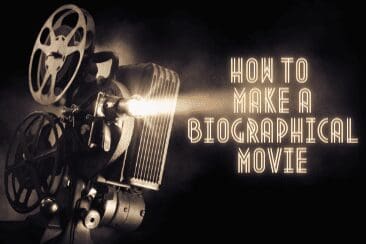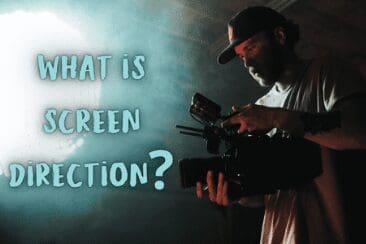What I missed most during lockdown wasn’t a walk in the center, or eating at restaurants. It might sound paradoxical, but I was craving being locked down again. Except for this time, in the dark, the magic place we call a cinema! There was only one event that could compensate for half a year of missed movies. It is the temple of films, the paradise of the cinephile: the Venice Film Festival Awards.
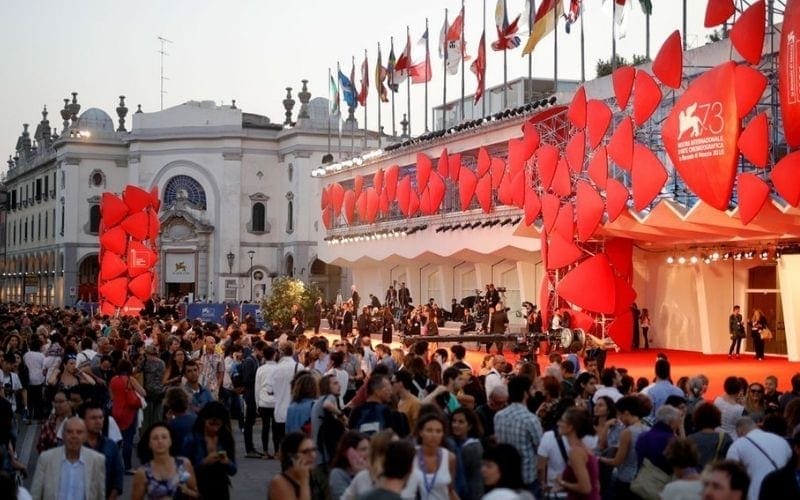
What Is The Venice Film Festival Awards?
Established in 1932, the Venice International Film Festival is the oldest cinematic kermess in the world. Along with Cannes, it is the most important European event in the filmic panorama, showcasing the most prominent, original, and awaited works from both established auteurs and new, upcoming talents.
However, the Venice Film Festival is more than a selection of movies. It also serves as a phenomenal networking platform, where many distributors acquire films and secure deals with production companies. In other words, it is an unmissable appointment for people who love films, and also for the folks who make them. Venice is the first festival held since the pandemic, unlike its French competitor who was forced to cancel that year’s edition.
When Is The Venice Film Festival?
The Venice Film Festival always takes place between the end of August and the first half of September. This makes the best out of the last, warm days of Summer. These are even more enjoyable when spent on a gondola for the festival! The official dates for the 80th edition have not been announced yet, but if you are planning to attend, make sure to take that first week of September off.
Venice Film Festival Schedule

Running for 10 full days, the first screenings usually begin around 8:00 am, and the last projector shuts down after midnight. One of the best aspects of this festival is the fact that everything is within reach. There are 10 working theatres spread inside the festival area (all within walking distance). This allows the attendees to catch as many films as they wish.
My daily routine would be 6 movies per day, sitting down from one screening to another and only catching a sun-ray as I’m rushing to another theatre, but I live the festival life hard-core. There is not a recommended amount of films per day, and you should find your own time to enjoy the festival in your way. Usually, the festival reaches its peak a few days after opening, on the first weekend. During this time, the festival presents the most expected films and brings the hottest stars onto the lido.
The Official Competition is composed of around 20 titles, normally scheduled as two per day. The Out of Competition movies are usually made by highly established filmmakers, who therefore are not expected to compete with any other film out of respect for their prestige. There is also the Orizzonti section. This is entirely focused on more experimental films that dare to break the form and take more risks. It is here that the short films find their homes.
Finally, there is also a selection of Restored Classics. This was, unfortunately, lacking this year to make more screening rooms available for the films. The reason for this was to guarantee enough seats to comply with social distancing security measures.
Venice Film Festival Awards
The prestigious award assigned to the Best Film in the Official Competition is the Golden Lion, the flying feline symbol of the city of Venice.
The festival’s jury changes each year and was recently presided by Cate Blanchett. The jury must award the Volpi Cups for Best Actor & Best Actress and the Marcello Mastroianni Award for the best young emerging thespian. The Best Director will bring home a Silver Lion, while the Golden Osella is assigned to the Best Screenplay.
The second place is titled Grand Jury Prize, and consists of another silver lion. It is often given to less commercial but more artistic films in the Official Competition, in which the mise-en-scene shines the most. The third place is the Special Jury Prize, an iron lion. This generally rewards specific aspects of a film or is an indirect recognition attributed to the author behind the movie. Furthermore, the Orizzonti section has its awards too: the Orizzonti Award for feature films, the Orizzonti Award for short films, the Orizzonti Award for medium-length films, and the Special Orizzonti Jury Prize.
Finally, La Biennale Di Venezia honors two legends of the Seventh Art, a director, and an actor, with the Lifetime Achievement Award. They have been assigned to Ann Hui and Tilda Swinton in the past.
Venice Film Festival Winners
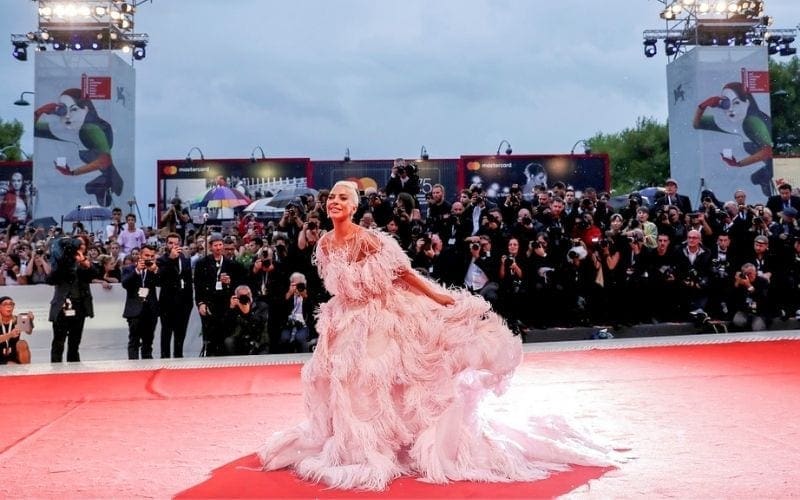
The number of icons who have attended this festival would be impossible to count, as there is a lot to have walked the Venetian red carpet. To drop a few names: Charlie Chaplin, Orson Welles, John Ford, Federico Fellini, Billy Wilder, Woody Allen, Luis Buñuel, Frank Capra, Martin Scorsese, Steven Spielberg, Stanley Kubrick and Clint Eastwood. That’s just naming a few!
Winners of the Venice Film Festival include:
- Golden Lion: Nomadland, dir. Chloé Zhao
- Silver Lion Grand Jury Prize: Michael Franco, New Order
- Silver Lion Best Director: Kiyoshi Kurosawa, Wife of a Spy
- Best Screenplay Award: Chaitanya Tamhane, The Disciple
- Special Jury Prize: Dear Comrades, dir. Andrey Konchalovskiy
Venice Film Festival Submission
Films can be submitted from the La Biennale di Venezia official website. After completing a submission form, there is a fee of €140 for features and €80 for shorts. The deadline is typically in June – but it’s always best to send it sooner.
Accreditation
If your film isn’t selected and you are not invited, the best way to attend is through accreditation. You can also buy individual tickets for each film, and the price differs from one screening room to another. Tickets range from less than €10 to about €40 for the evening premieres in Sala Grande, with cast & crew present.
Yet, accreditation is certainly the most convenient option. Once accredited, you will have access to all films. Plus, for the €70 early-bird fee, you can watch as many as you like for the duration of the festival.
The Cinema accreditation is the general one. If you are a university student, you need to send a request with some documents attached. You can ask for press accreditation if you write for a newspaper or magazine. On top of priority, this access also allows you to enter press conferences.
Conclusion
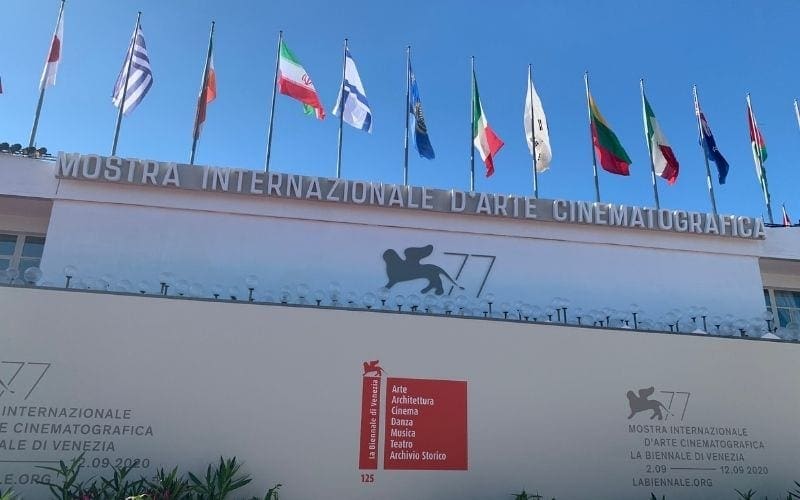
To sum up, the Venice Film Festival is a mecca for any cinephile. It is very accessible and yet still glamorous. If you have ever fantasized about having a Martini with your favorite actor, walking the red carpet, or watching a wild number of movies, you know where to go now. I hope to see you at the Lido at the 80th Venice Film Festival!
Are you an aspiring filmmaker looking for music for your next project? We can help! With our concierge and service and extensive music library, allow us to help you find music for your film.





